#011 - The True Anatomy of Purpose
PART 2: your compass bearing to a forgotten border
~
When the mind can’t help you navigate, what other parts of you seem to know the way?
In the first piece of this series we saw that Purpose is not something we can power through with our mind, and that it speaks first and foremost through our bodies and how we feel.
This is because, like a friend of mine says, la voz del cuerpo es inevitable.
The voice of the body is inevitable.
And still, we tend to not listen to it.
~
When we hit a crisis, we feel confused and we want to understand the way forward, that’s exactly what we try to do: to understand it.
It doesn’t matter how loud our bodies are speaking already, the go-to approach we learnt from our culture is to gather more information in order to identify the right direction to take.
And this is when it becomes tricky.
Because while research, new references and more information are important, behavioural scientists explain to us that more information does not lead to more action.
Quite the contrary, in fact.
The more information we have, the more stuck we become. We become more knowledgeable, but we also feel more overwhelmed and unsure about what’s the “right thing to do” – because every direction is potentially right, yet we can’t identify the one that’s right for us.
So how do we de-code our right way forward?
~
Once we accept that neither our minds nor more information will get us where we are going, and that Purpose speaks through our bodies, the whole conversation changes.
Because, no matter what we want to call it, we can agree on the fact that there’s something else within us that knows the way already (and whose calls we struggle to hear).
I like to call it a compass bearing to a forgotten border.
It’s a term I found last year in the poem The Return by Geneen Marie Haugen, and I’ve used it ever since.
But how does it work, and why do we struggle to connect with it?
There are 3 main things we must know about this compass:
- To connect with it is less about addition, and more about removal
- The more we connect with it, the more sensitive it becomes
- It bears us to a forgotten border, which means that Purpose is less about inventing something and more about remembering.
There is a lot to unpack here.
For today, I’d like to focus on point 1.
~
If we agree that the compass knows the way but we struggle to hear what it says, we can think about it like a magnet covered in layers that prevent us from getting a clear signal.
As I was reflecting on this, a quote of Michelangelo came to mind:
“The sculpture is already complete within the marble block, before I start my work. It is already there, I just have to chisel away the superfluous material (for it to emerge).”
And that clicked for me.
The first lesson our compass teaches us is that we could not follow its signals because we (ourselves) covered it in layers – that we need to remove.
These layers are the stories, priorities and scripts that we took on in the desperate attempt to belong with our loved ones, to fit-in with our family or culture of origin, and their story of worth and success.
How so?
Behavioural science teaches us that we are the mammals that take the longest to become independent and able to survive on their own, which means that for the longest time our survival mechanisms and consequent behaviours will have one goal: to belong. Because that’s the only way we can survive.
At the same time, we already had that compass.
But we needed to fit in, so we tried to de-code what would make us be accepted instead.
But we were following that compass when someone we cared about got upset, so we made sure not to do it again.
But our compass was pointing to directions that didn’t match any idea of worth coming from our context, so we sabotaged those suggestions and went the other way.
And so on.
This reveals one of the most important lessons of the compass bearing to a forgotten border: generally we disconnect from it out of love and care – for our families, friends and surrounding environment, that we don’t want to upset, trigger or hurt by following that which within us seeks to fulfil its promise.
And this one hits hard.
Because one thing is to learn that to de-code your way to Purpose you need to remove, cut loose and shed what’s not serving you anymore.
Another thing is to discover that the most important thing to remove are the stories and sabotage mechanisms you adopted in order to belong with who you care about, and the consequent triggers that the removal process will activate.
~
Purpose is about re-finding our compass bearing to a forgotten border, and removing everything we built in order not to.
But why is this important in the context of impact and sustainability?
Because in the Purpose Economy sector it’s particularly easy to get lost in what feels logically and intellectually compelling.
Partly because it’s a global trend, so any choice in its direction will be applauded, but also because the more we research and the more we realise that all social and environmental causes feel crucial and moving.
So unless we learn about tuning it with our compass, remove those layers and follow the signs, we might end up over and over again on a path that should feel great – but doesn’t.
~
As we mentioned above, the more we tune in with our compass and the more sensitive it becomes – which also translates to: it becomes more loud.
Yes this. No that. Not that either.
I can’t offer a remedy for the hardship of that process.
Only my invitation to not shame – yourself or others, for feeling wrong in places where “you should feel right”.
That’s the first step.
Happy Holidays, M
~
PS – the full quote on following what within us seeks to fulfil its promise comes from Etty Hillesum: “I don’t want to be anything special. I only want to try to be true to that in me which seeks to fulfill its promise.”
She is often referred to as “the other Anne Frank”. Her story, I have to say, moved me a lot more, so I highly recommend the book An Interrupted Life: The Diaries of Etty Hillesum, 1941-1943.
PPS – In one of the recent courses I took I came across a song that speaks about the “chain of unconscious decisions” that lead us to disconnect from our compass, and some of the ways in which that disconnection expresses itself into the world. If there’s one song I recommend to reflect on this topic, it’s this one: Once Upon a Time, from Alexandra Blakely



